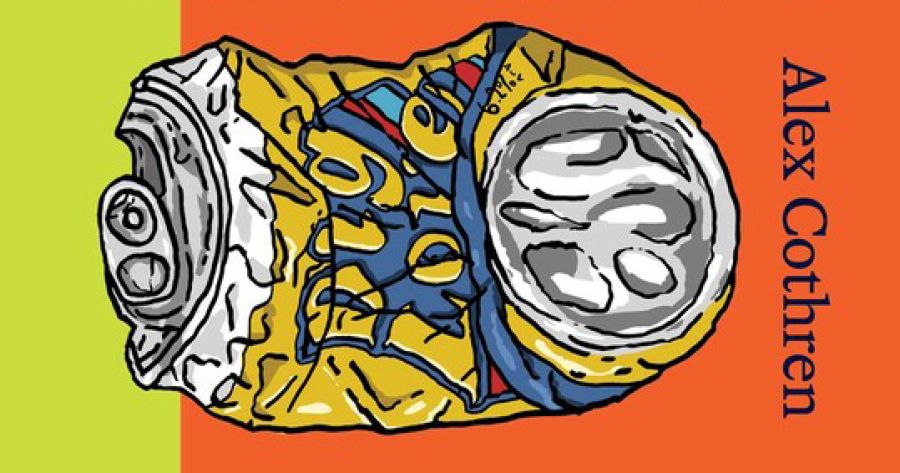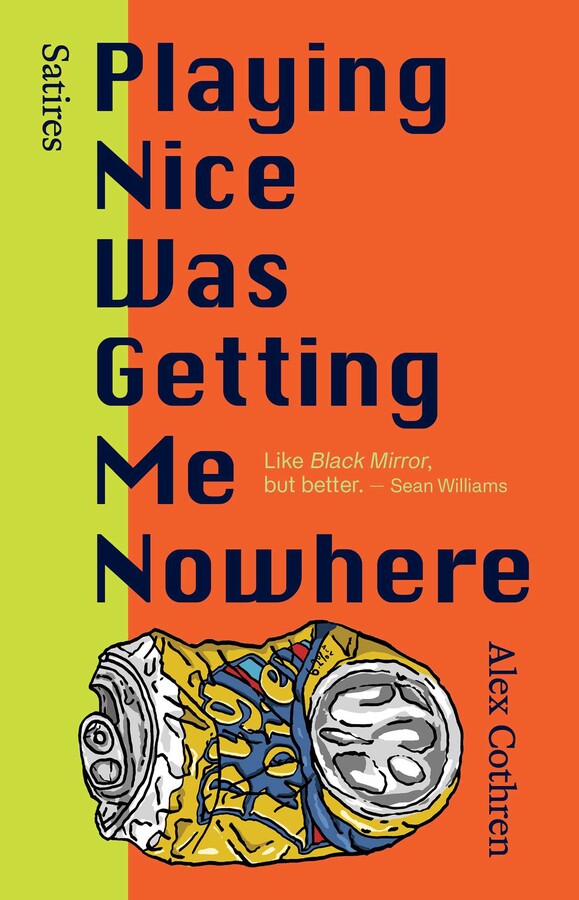
- Free Article: No
- Contents Category: Fiction
- Review Article: Yes
- Article Title: Quick punch
- Article Subtitle: An uncomfortable novel
- Online Only: No
- Custom Highlight Text:
In an instance of delicious wit, a new South Australian publisher is called Pink Shorts Press. That Pink Shorts Press has chosen a satirical collection as one of its first titles represents an almost perfect alliance. The only potential fly in this unctuous ointment is the question resounding across the world at the moment: how, as an author, does one challenge reality, distort the facts, and subvert the narrative, when currently one person dominates most of the work traditionally ascribed to satirical creatives?
- Book 1 Title: Playing Nice Was Getting Me Nowhere
- Book 1 Biblio: Pink Shorts Press, $32.99 pb, 176 pp
- Book 1 Cover Small (400 x 600):

- Book 1 Cover (800 x 1200):

- Book 1 Readings Link: https://www.readings.com.au/product/9781763554177/playing-nice-was-getting-me-nowhere--alexander-cothren--2025--9781763554177#rac:jokjjzr6ly9m
Confronting the Trump factor head on, Alex Cothren has indicated that his intention in Playing Nice Was Getting Me Nowhere was to examine the effectiveness of satire ‘in an increasingly absurd world’, and to explore contemporary forms of writing, such as those found in The Shovel or The Betoota Advocate, whose faux news increasingly resembles the real news. As a result, the core narratives in almost all of the stories in this collection could come from the pages of either The Guardian or The Onion. In fact, one of these stories, ‘Let’s Talk Trojan Bee’, is written entirely in the form of headlines and quotations from actual news publications. I was tempted to google them to see if these were indeed real, but that would have fractured the spell. And it is not the point, anyway.
Cothren’s other stated aim was to offer ‘playful stuff’ and push the boundaries of literary form. He is hardly the first to attempt this. Ryan O’Neil’s 2018 collection The Drover’s Wives offers ninety-nine versions of Henry Lawson’s classic story using the forms of an Amazon review, a Tweet, a sporting column, a limerick, and so on; some of the stories in Fiona McFarlane’s Highway 13 (2024) also play with form, appearing as a podcast script or a one-sentence narrative, for example.
Exploiting form and genre for laughs always presents risks: the parts might be more compelling than the whole, the central conceit might wear thin, and the overall project can seem too much like writing class exercises. Write a story in the style of an Enid Blyton adventure. Tick. Write a story like a Reddit thread. Tick. Write a story in script form, metafictionally using the tropes of classic television crime drama. And so on.
While Playing Nice Was Getting Me Nowhere does all this (and more), for Cothren working within the discipline of a particular form has been, overall, more successful than gimmicky. Plus, there is nothing wrong with provoking laughter, a helpful response to in the variously brutal and repressive world that supplies the subjects here. Many of these stories address authority (literally, in the case of several) and authoritarianism, which can take away our agency, but never our sense of humour.
Several stories have an underlying environmental theme, and one of these, ‘Royal Commission into the Koala Population Scheme’, takes the form of a transcript of royal commission proceedings. Ridiculous and amusing, this story becomes a sobering indictment of the endless bureaucratic knot-tying that governments and their agencies undertake when failing to protect the very thing that they are set up to protect. There are images of small children in koala suits that I will not forget in a hurry.
Similarly, the title story cleverly exploits the excruciating language and structure of the traditional peer-reviewed journal article in a narrative about a series of stress-related deaths in an unnamed Australian university. The laughs are tempered, for those familiar with the industry, by the knowledge that right now, in the story’s own words, the casualised neoliberal work environment of the Australian university is traumatising a whole new generation of staff and students alike.
Most stories stick to the essential satirical brief: a quick punch to provoke laughter, an after effect of wincing pain. Laughter is frequently medicinal, and medicine is not always palatable. Cothren’s deadpan narrative voices and avoidance of moral absolutism while grappling with weighty issues means that he is never trying to educate, inform, or persuade us. But he is certainly making us deeply uncomfortable. In ‘Empathy International’, a woman seeks help from a facility to cure her compassion fatigue, fed by causes like African famine and Caribbean hurricanes. What she receives is something altogether unexpected and horrific; there are no laughs in this story.
‘Desiree Marley, Coral Restoration Artist’ recounts the experiences of an artist employed to paint bleached coral. With about 250 km of reef to restore, the narrator is relishing the prospect of years of employment: ‘Like, good luck making it any other way as an artist in this country.’ When you twig that the setting, Lizard Island, is famously the place where David Attenborough began his long fascination with the Great Barrier Reef, there is another punch to the guts.
As for that news headline story, ‘Let’s Talk Trojan Bee’, what first appears as random headlines and news grabs proves to be an artfully constructed story that circles back to its beginning, focussing on a mass murder in the United States. Along the way we are forced to consider how this tragedy links to others: the eradication of bees, the effects of drought on crops, the fate of undocumented migrants. Xenophobia, climate change, and right-wing extremism all come to speak for themselves and the effect is one of unfiltered commentary, a condemnation of both news media sensationalism and the public’s limited capacity to absorb trauma. ‘Let’s Talk Trojan Bee’ has a lot more in common with ‘Empathy International’ than is first apparent.
Appropriately, this story and the collection end with a quotation from The Onion: ‘Honestly? We’ve got nothing – “Every Satirist Everywhere Retires”.’ But presumably not this author.


Comments powered by CComment